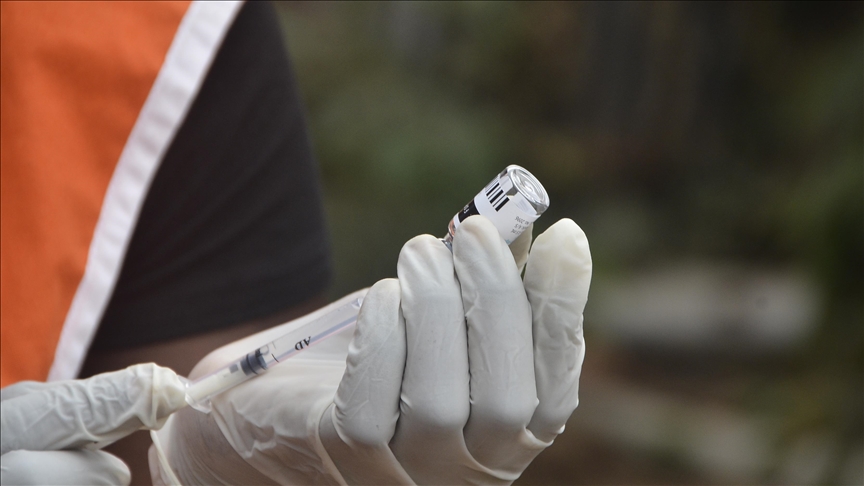Papadopulos in bid to avoid KKTC recognition
Greek Cypriot leader Tasos Papadopulos said his administration was supportive of the economic openings being made towards the Turkish Cypriot part of the Mediterranean island but would never allow the recognition of the Turkish Cypriot state.
Speaking upon his arrival in southern Cyprus from a week-long trip to the United States where he was not received by any American official, Papadopoulos said the United States and the United Kingdom had tried to pass a resolution at the United Nations Security Council based on U.N. Secretary-General Kofi Annan’s Cyprus report but that other members of the Security Council had rejected the resolution.
Last week, Annan submitted a comprehensive report on Cyprus demanding an end to the international isolation of Turkish Cyprus and continuation of the U.N. peacekeeping mission on the island for a further six months. The 25-page report recounts the 4-year negotiation process for the reunification of the island, the April 24 referendum process and the current situation in Cyprus. The United States and United Kingdom presented a draft resolution accepting the report as a U.N. Security Council resolution but was rejected by the council.
UNFICYP mandate extended
The U.N. Security Council extended on Friday its peacekeeping mission in Cyprus for six months and asked Annan to review the purpose of the force after Greek Cypriots rejected the reunification plan.
The meeting was rancorous, rare for a routine renewal, with Pakistan and Algeria saying the 40-year-old force should only be renewed after Annan gives his appraisal, due in three months.
James Cunningham, the U.S. deputy ambassador, harshly criticized the Greek Cypriots, saying Annan had to examine "the need" for the operation, in light of scarce resources and results of the referendum.
Cunningham said the Greek Cypriots "missed an historic opportunity for peace." If they want to negotiate in the future, they first need to "articulate with clarity and finality" their concerns," he said.
Papadopulos addressed a press conference at Larnaca Airport on Saturday on his return from the U.S. where he met Annan but not received by any American official, a sign of the American frustration with his intransigent opposition to a compromise settlement on the island on the basis of a United Nations settlement blueprint.
Papadopulos said that the permanent and temporary members of the Security Council, except the U.S. and UK, did not support the passing of the 93rd paragraph of Annan’s report — which demands economic aid for Turkish Cyprus — as a U.N. Security Council resolution.
The Cyprus report, drafted by the U.N. Special Coordinator to Cyprus Alvaro De Soto, praises the constructive attitude of the Turkish side that backed the U.N. peace plan to reunite the divided island and criticizes the uncompromising approach of the Greek Cypriot side which killed the plan by voting overwhelmingly against it in the referendum. In his Cyprus report, Annan urged the U.N. Security Council to encourage all nations to eliminate the unnecessary restrictions and obstacles responsible for the isolation of Turkish Cypriots.
Papadopulos also said that he had not presented any proposal to the U.N. secretary-general at his meeting with him but only met Annan in order to explain the rejection by Greek Cyprus of Annan’s international Cyprus blueprint at the referendum.
Papadopulos said that he was in favor of a two-sided federal solution establishing two regions in Cyprus adding that the Annan plan would not be put to a referendum again without thorough changes.
He said that he was in favor of contributing economic aid to Turkish Cyprus but that the aim should not be international recognition of Turkish Cyprus through "separatist policies."
Weston: US doesn’t object to ‘Cyprus Turkish State’ term
Meanwhile, U.S. Cyprus Special Envoy Thomas Weston said that the U.S. has no objection to the Organization of Islamic Conference (OIC) referring to the Turkish Republic of Northern Cyprus (KKTC) as ‘Cyprus Turkish State’ a terminology used in the failed Annan plan.
Defending allegations by Turkish Cypriot President President Rauf Denktas that the U.S. was obstructing the recognition of KKTC did not reflect reality, Weston stressed that the OIC could refer to the Cyprus Turkish community however they like. He added that the U.S. administration had no objections to the expression "Cyprus Turkish State." Weston pointed out that the discussion in the OIC was not about the recognition of KKTC, but about how it should be called.
The U.S. is currently preparing a package that will detail how direct trade with the KKTC will be handled. The package will reportedly be released after the E.U.’s aid package. Weston said the U.S. administration wants to see the European Union’s aid package to the KKTC be the catalyst that brings about an end to the country’s isolation. He added that the Greeks would not be able to veto such a package because the E.U. will reach the decision by absolute majority.
‘Recognition’ pressure on Turkey
Meanwhile, the declaration of the EU summit to be held on June 17-18 would reportedly call on Ankara to include the Greek Cypriot side in the customs union agreement.
Talat: Serious problems with EU
Meanwhile, KKTC Prime Minister Mehmet Ali Talat said there were many big problems in KKTC’s relations with the EU.
Briefing reporters about his meeting with EU Commissioner for enlargement Guenter Verheugen last week, Talat said that analytic searches continued, hoping that the Cyprus problem would be solved.
Talat said: "When the problem couldn’t be solved, EU was seriously confused. They thought that either the problem would be solved or the Turks would block a solution. They didn’t think the opposite."
"A Green Line Regulation was prepared. This doesn’t satisfy us, but it is a text covering serious developments. Now, principles of free trade are being set. There are many technical issues like the Green Line, free trade, direct flights, ports, and lifting of sportive embargoes. I explained our initiatives to adjust to EU norms. For example, they are sensitive about the trial of civilians in military courts. I said that we had solved it. I explained the democratic moves," Talat noted.
Talat said that Turkish Cypriots expected the Greek Cypriots to show the same positive reactions, but the Greek Cypriots continued their restrictions.
"I said that they stopped our commercial vehicles from crossing to the south. They thoroughly search every car, the cars of tourists, taxis and lorries which want to cross to southern Cyprus. They are imposing very high insurance fees and assuming a deterrent attitude," Talat said.
Talat stated that the KKTC has asked for assistance concerning issues in favor of its people and said, "It is not possible to exclude Turkish Cypriots after the simultaneous referenda."
"The first condition for free trade is that we should use our own transportation means, airports and sea ports. A mechanism which will accept health certificates, documents of origin and circulation should be established. It is important to export our products to EU countries. If these are not ensured and if they ask us to export our goods via the south of the island, the deterrent attitudes and legal restrictions of the Greek Cypriots will continue. We aim to make by-sectors operational," Talat said.
Talat went on to say: "There are many problems. The Greek Cypriots have become an EU member and they have the right to vote and veto. They have the right to cause difficulties in some matters. It is not possible to overcome them under these circumstances. The commission is also problematic and we are also troublesome. For example, the Greek Cypriot administration is authorized for a document of origin to be given by our Chamber of Commerce. This is the biggest problem. The Greek Cypriots have commissioners in the European Commission. And, moreover this commissioner had a leading role in rejection of the Annan plan. He was the Finance Minister of the Greek Cypriot side, and now he is an EU commissioner. He is working for the EU. We have more problems of this kind. Turkey also has some problems. It broadened the customs union and added nine other countries. Things have become complicated. A solution will be found in the end, but Turkey has to take some forced steps."
"What I saw in my meetings is that the reaction has increased against their wrongful attitude. This will have political and emotional effects. How long can they leave a society outside and put pressure on it? This is a very serious thing," Talat said.
Talat noted that a plan and program would be prepared for the 259 million euros of structural funds expected to be allocated by the EU to the KKTC.
"The European Commission seems it will do its best for creating a free trade environment. They have not set any date. The EU council will take a decision before the end of this month. Outlines of the European Commission’s proposals are not immediately certain. Our proposals that two members of the European Parliament from Cyprus should be chosen from KKTC or two seats should be kept empty. Maybe, our third proposal can be accepted. We want two Turkish Cypriots to be included in the European Parliament as observers. The new parliament will evaluate these proposals," Talat said.
Talat said: "It is very difficult at the moment to take a step like removing the reason for isolation. The Greek Cypriots say that Turkish Cypriots should take the necessary documents from its authorities while we say that they don’t have this right because they don’t represent us. Problems stem from this. I don’t know how acceptable it will be to file a lawsuit. But, there are some issues like their obstructive attitude towards free trade. Individual cases can be filed at the European Court of Justice and the European Court of Human Rights. We will try legal means, but we have not reached that stage yet."
The European Commission planned to open an office comprised of 20-25 people in KKTC, Talat stated. He said that the commission was therefore searching for a building and waiting for the approval of the council.
"Verheugen didn’t tell me to feel relieved. He explained the difficulties and expressed his views. Of course, there are difficulties. The Cyprus Republic is an EU member. We will be active as much as we can. We are exerting efforts in the international arena. We plan to visit the capital cities of major countries before the EU summit. I am waiting for invitations. We need to go to these countries and present ourselves in the best way possible because there are many problems. There are also problems before Turkey. Turkey is in a position of being forced to recognize the Cyprus Republic. The EU has started to see that it admitted a country which is causing problems," Talat said.
Talat noted that he did not see any negative attitude towards Turkey in his meetings. Expressing that Turkey would receive a negotiation date from the EU in December, Talat said that the Cyprus issue was no more an obstacle before Turkey.
KKTC wants the international community to lift embargoes and end the isolation of its people after the majority of its people voted in favor of Annan’s plan for a comprehensive settlement to the Cyprus problem. The Greek Cypriot side rejected the plan in simultaneous referenda held on the island on April 24.


